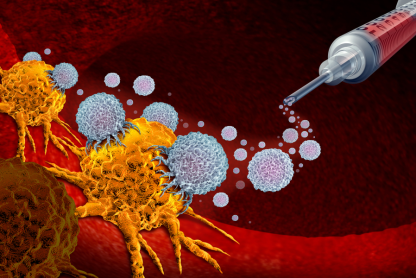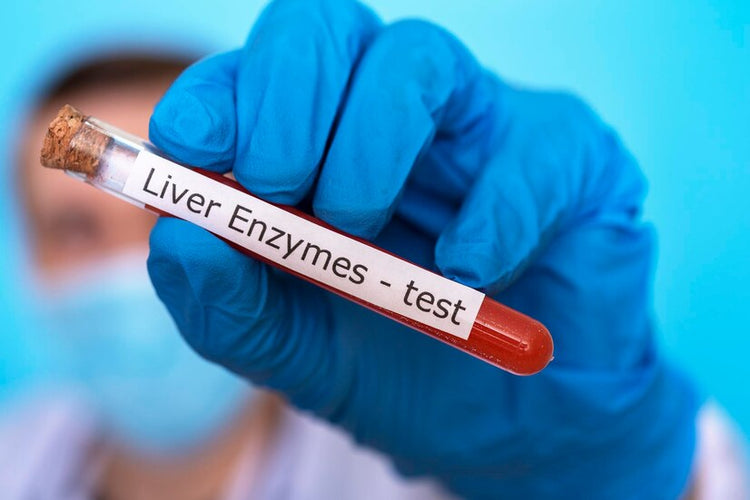Signs and Symptoms of Ovarian Cancer


Related products
What’s covered?
Cancer grows when cells in the body start to proliferate uncontrollably. Cancerous cells may form and propagate in almost any region of the body. These cells multiply when triggered by various circumstances such as stress, poor nutrition, ageing, inherited genetic mutations, and many more.
Moreover, ovarian cancer was formerly thought to develop solely in the ovaries, but new research from the American Cancer Society reveals that several ovarian tumours may originate in cells towards the far end of the fallopian tubes. In addition, ovarian cancer is the abnormal growth of cells in the ovaries. The cells increase rapidly and damage healthy bodily tissue.
Ovaries And Ovarian Cancer

Ovaries are female-only reproductive glands found on every side of the uterus. For reproduction, the ovaries create eggs. Then the eggs move from the ovaries to the uterus via the fallopian tubes, where the fertilized egg rests and grows into a baby. The ovaries also produce the feminine hormones progesterone and oestrogen, which are essential for body function.
Furthermore, ovarian cancer arises when cells in or around the ovaries have DNA abnormalities. A cell's DNA includes the blueprints that inform the cell what to do. The mutations instruct the cells to develop and increase rapidly, resulting in a tumour of cancer cells. If healthy cells are destroyed, malignant cells continue to proliferate. They can infect adjacent tissues and separate from a primary tumour to propagate to other body sections.
Types Of Ovarian Cancer
The type of cell wherein cancer originates determines the type of ovarian cancer you have and assists your doctor in determining which therapies are most effective for you. The following are the types of ovarian cancer:
- Epithelial Ovarian Cancer- This is the most prevalent kind of ovarian cancer. These have various subtypes, such as mucinous carcinoma and serous carcinoma.
- Stromal Tumours- These uncommon tumours often detect ovarian cancer earlier than other types of ovarian cancer.
- Germ Cell Tumours- These uncommon ovarian cancer cells usually attack people at an early age.
Early Signs And Symptoms Of Ovarian Cancer
Although ovarian cancer symptoms might be ambiguous, monitoring how long they continue is essential. Consult your physician if your symptoms persist and do not resolve within 7 to 21 days or if over-the-counter drugs don't provide relief. Women could have a better chance of catching and treating the condition if they recognise the early warning signs of ovarian cancer:
1. Bloating
Almost all women have suffered bloating, an unpleasant sensation of fullness in their stomach. While feeling bloated is natural, particularly during your monthly period, constant bloating that persists every day for up to 21 days is not. Among the most prevalent early phases of ovarian cancer is being bloated and full all of the time. And bloating combined with stomach distension might be a warning sign of a problem.
2. Constipation
Worry, stress, irritable bowel syndrome, and ovarian cancer have all been related to gastrointestinal diseases. Constipation is a typical gastrointestinal symptom of ovarian cancer. Take note of any changes in your bowel patterns, particularly new constipation that is not eased by any treatments.
3. Prolonged Pain
Persistent pelvic or abdominal pain, as well as lower back discomfort lasting 7 to 21 days, might indicate a problem. While ovarian cancer symptoms may be associated with various ailments, it is vital to note if the discomfort is unusual to you, it doesn't come and go and can't be readily ascribed to other sources. If your pain decreases when your stress is reduced, your symptoms are most certainly stress-related. Meanwhile, if your discomfort subsides after making dietary modifications, it is most likely a GI issue.
If you experience these persistent symptoms despite your best efforts to get alleviation, see your physician for tests:
- A pelvic examination
- A GI assessment, which includes a physical exam and GI tests
- Bloodwork
- Ultrasound, CT scan, or MRI
4. Change In Bladder Function
When women have urinary difficulties, like discomfort or urgency when peeing, they usually believe that they have a urinary tract infection. It is sometimes the case, but bladder-related disorders may also indicate a reproductive or gynecologic condition, such as ovarian cancer. The following are examples of urinary symptoms connected with ovarian cancer:
- Urgent need to urinate
- Urine frequency
- Feelings of bladder pressure or discomfort
5. Difficulty In Eating
A frequent ovarian cancer symptom is a lack of appetite. Aside from a lack of appetite, other early signs of ovarian cancer involve feeling full and having trouble eating even modest portions of food. Consult your doctor if this is an unusual symptom for you.
Signs And Symptoms Of Advanced Ovarian Cancers
The malignant cells in advanced ovarian cancers have moved to many other body regions, like the intestines, lymph nodes, abdomen, and other organs. At this phase, people already recognise ovarian cancer symptoms. Patients with advanced ovarian cancer may experience:
Digestive Symptoms
Ovarian cancer can spread and impair a woman's digestion. This could extend to the intestines in the final phases. This might also result in discomfort, abdominal pain, nausea, constipation, or a bloated stomach.
Ascites
When cancerous cells grow in the liver and abdomen, it causes huge volumes of fluid to build in the belly. This might result in:
- Shortness of breath
- Nausea
- Heartburn or indigestion
- Loss of appetite
To alleviate the pain, the doctor might remove this fluid.
Weight Loss Or Gain
If fluid accumulates in the belly of a person with ovarian cancer, they can increase weight unintentionally. They may, however, lose weight if they lack appetite. Cancer cachexia is characterised by decreased muscle mass, weight, and appetite.
Fatigue
In the advanced stage of ovarian cancers, the malignant cells consume energy, causing acute fatigue.
Risk Factors For Ovarian Cancer
Ovarian cancer's specific aetiology is uncertain. However, the following things may raise your risk of ovarian cancer:
- Endometriosis
- No history of pregnancy
- The utilisation of certain fertility medications or hormone treatments
- Obesity
- Medical record of colon, uterus, or breast cancer
- Alterations in genes linked to ovarian cancer, including BRCA2 or BRCA1.
- Family history of ovarian cancer
Another risk factor is advanced age. Most ovarian cancers develop after menopause. Moreover, it is possible to get ovarian cancer despite not experiencing any of the risk factors listed above. Hence, having any of these risk factors does not ensure that you will get ovarian cancer.
Ovarian Cancer Diagnosis
Early detection of ovarian cancers makes it simpler to manage. However, it is hard to identify. Since your ovaries are deep inside your abdominal wall, you are unlikely to experience a malignancy. In addition, unlike other malignancies such as colon and breast cancer, ovarian cancer is not routinely screened. That is why discussing any unexpected or recurring symptoms with your doctor is critical.
If your healthcare provider suspects you have ovarian cancer, they would probably propose a pelvic exam. A pelvic exam may allow your doctor to determine abnormal cells, although tiny ovarian cancers are hard to see. Moreover, the tumour pushes on the rectum and bladder as it develops. During a rectovaginal pelvic examination, your doctor may be able to discover problems.
In addition, your doctor may order the following tests:
- Biopsy
- Positron Emission Tomography (PET) scan
- Transvaginal ultrasound
- Abdominal and pelvic CT scan
- Chest CT scan
While these testing procedures may assist your physician in diagnosing, only a biopsy can establish if you have ovarian cancer. For help with diagnosing other types of cancer and their symptoms, check our article on the: Signs and Symptoms of Cancer.
How To Treat Ovarian Cancer?
The therapy is determined by how far the cancer has gone. Based on your circumstances, a team of experts will devise a care plan. It will almost certainly contain two or more of the following:
- Hormone therapy
- Targeted therapy
- Surgery to stage cancer and eliminate the tumour
- Chemotherapy
Surgery
The primary therapy for ovarian cancer is surgery. Although surgery aims to eliminate the tumour, a hysterectomy, or complete excision of the uterus, is frequently required. Your doctor may also advise you to remove both fallopian tubes, ovaries, surrounding lymph nodes, and other pelvic tissues.
Targeted Therapy
Chemotherapy, for example, targets cancer cells while causing minimal harm to other cells in the human body. PARP inhibitors are newer targeted therapy for advanced epithelial ovarian cancer. These medications inhibit an enzyme that cells employ to fix DNA damage.
The three PARP inhibitors that are presently available are:
- Rucaparib
- Niraparib
- Olaparib
Following surgery, another medicine, bevacizumab, has been administered in conjunction with chemotherapy. Furthermore, since BRCA genes are associated with DNA repair and could be more susceptible to anticancer drugs that function by disrupting DNA, persons who carry the BRCA2 or BRCA1 genes may have somewhat altered targeted therapeutic choices.
Fertility Preservation
Cancer therapies such as surgery, radiation, and chemotherapy may harm your reproductive organs, making pregnancy hard. If you want to bear a child in the future, consult with your doctor beforehand. They can talk to you about your alternatives for maintaining your fertility.
Possible fertility preservation measures involve:
- Suppression of the Ovaries- This entails taking hormones to inhibit ovarian activity briefly.
- Preservation of Ovarian Tissue- Harvesting and storing ovarian tissue for prospective usage.
- Fertility Preservation Surgery- In rare circumstances, a procedure that eliminates one ovary while leaving the healthy ovary intact may be performed. This is typically only achievable in ovarian cancer in its early stages.
- Freezing of Oocytes- An unfertilized egg is frozen in this method.
- Freezing of Embryos- This is accomplished by freezing a fertilized egg.
Ovarian cancer treatment consists mainly of operations to eliminate the uterus and the ovaries, as well as chemotherapy. As a consequence, several women may suffer menopausal symptoms.
For our Well Woman Blood Test, click here.












 Rated Excellent by 26,523+ Reviews
Rated Excellent by 26,523+ Reviews